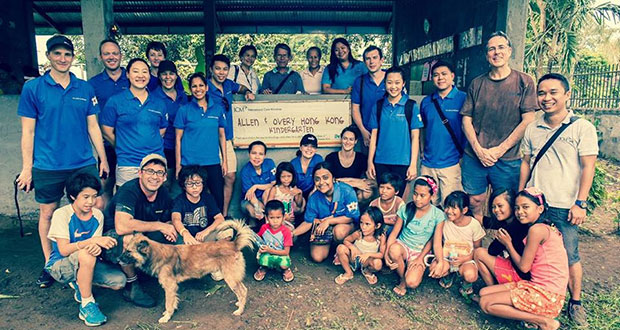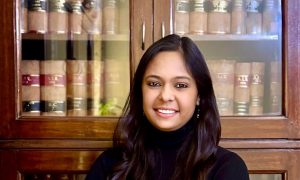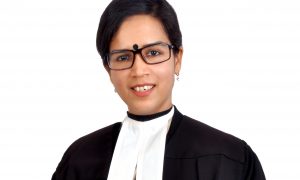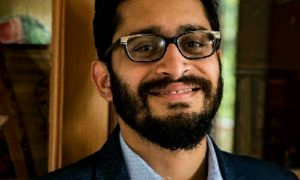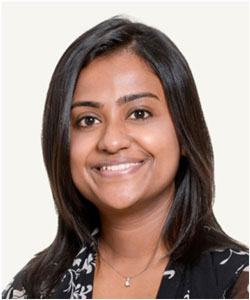 Debolina Saha graduated from NUJS, Kolkata. She worked at AMSS before getting appointed to Ashurst LLP, London. Currently, she is an associate of Allen & Overy based out of Hong Kong.
Debolina Saha graduated from NUJS, Kolkata. She worked at AMSS before getting appointed to Ashurst LLP, London. Currently, she is an associate of Allen & Overy based out of Hong Kong.
In this interview she talks about:
- Work experience at the largest Indian law firm
- Appointment at Ashurst LLP without the necessity of masters in law
- Working on tight schedules and time management
- Work experience at a Magic Circle firm, Allen & Overy
What impressed upon you the idea to study law? Being fairly a new concept and a new university how did you decide to pursue law from NUJS?
I chose law for very different reasons. I always aspired to join the civil services and so thought at my undergraduate level it would be best to take up subjects that would be closely linked to subjects that I would be dealing with on a daily basis as a civil servant—and of course then the natural choice was the study of law.
The fact that Dr. N.R. Madhava Menon would be the vice-chancellor of the new law school in Kolkata, was enough to strike both a chord of trust and optimism that NUJS too would soon be in similar leagues with the National Law School of India University at Bangalore and joining NUJS would definitely turn out to be one of the best decisions of life.
Also NUJS came with the added advantage of being just 10 minutes walking distance away from my home -so I guess it was hard to say “no” to NUJS and it was the best way of savouring a few more years within the comforts of home, before a job required me to move out of Kolkata.
How did you fare in your academics at NUJS? Would you say a great CGPA is a necessity to kickstart a good career in the legal profession?
I missed out being on the top 10 student rank list of my class but was jointly ranked 11, in a class of 66 students. Doing well in academics was personally imperative to me. I come from a very simple family and being a first time lawyer in my family with no big names to back me up or provide me with references-I felt the only way for me to put my best foot forward was by means of doing well in academics.
CGPA, does not reflect your level of intelligence or capability but what it does reflect to a person who first examines your curriculum vitae is that you believe in excelling, putting your best, are a focussed individual and have a higher degree of perseverance than the rest—-all of which qualities are highly valued at the job front.
Sadly it is the truth, but CGPAs (which show your grade for a five year period and not just one semester) often gives the interviewer (who is a total stranger) a first impression about a candidate. But CGPA alone does not determine everything. Your personality, extra-curricular achievements and other volunteering activities—in short a “consistent” track record of achievements all put together, add to giving you that much needed ‘kickstart’ at a good legal career.
Once into the profession, your CGPA really does not make any difference. I know of some fantastic lawyers who are doing very well in their profession but cannot boast of high CGPAs at law school.
Right after graduation you got appointed at AMSS. What had contributed towards this appointment? What did you take away from a year long work experience at the largest Indian law firm?
Amarchand gave me the strongest platform to start my career with and a brand name to pride myself—–an opportunity for which I would always be grateful. A consistent track-record of achievements at law school, a good group discussion round and an interview, I guess all contributed to securing a place with India’s largest law firm.
Amarchand taught me that here was no replacement for hard work and to be honest it laid the foundation for my years to come and develop as a lawyer. Even as a fresher since I was deeply involved in transactions, at a very early stage of my career I got a bird’s eye overview of what my future as a lawyer would be. So while making my next move to Ashurst LLP in London, I was well prepared for the ‘life of a lawyer’—a life involving a whole lot of travelling, application of law, multitasking, dealing with stress, client management, working long hours and of course when not at work learning to make the most of leisure.
Soon after completing a year at AMSS you started work at Ashurst LLP, London. How did this transition happen? Did you get an offer or did you apply for Ashurst?
I have always been a strong believer of the fact that during one’s initial stages in the legal career, once should try and meddle with as many areas of law as possible before finally deciding the area that one would like to focus on.
Unfortunately, during my time, we did not have a “rotation system” to various departments that many Indian law firms now offer their fresh associates. Having already been placed in India’s leading law firm, the natural way forward for me was to branch out beyond India. That was when I applied to Ashurst LLP, in London for a position in their international finance team. I was fortunate to have an associate role offered to me as opposed to a training contract. Generally with merely a single jurisdiction qualification (in my case India), only a year’s work experience in an Indian law firm and no master degree in law, one should be fortunate to just secure a training contract with a city-law firm in the United Kingdom.
How different or similar was your work profile at Ashurst? What did you take away from your experience at Ashurst? How did your stint at Ashurst help you in making an ideal work profile?
My role at Ashurst was more tilted towards the banking side, while at Amarchand I was a capital markets lawyer and the then Disclosure and Investor Protection Guidelines earned me my bread and butter.
At Ashurst I was grappling on a daily basis with a host of new laws, never-heard-before terms that the Loan Market Association was throwing at me with every new read of the know-how documents and generally getting up to speed with a silver circle firm’s manner of drafting, various United Kingdom’s legislation, and associates who were already more experienced in this particular area of law. At least while, at Amarchand, certain laws and terms looked familiar and were taught at law school.
Looking back now- my first four months at Ashurst taught me how it was more important to know where to find the law than what the law is, it taught me to be calm even when being out of one’s comfort zone, be willing to learn new things and most importantly being eager to experience the unknown. Though it can be daunting at first, once you cross the initial jitters, you would want to give yourself a pat on your back.
Working for any international law firm especially a magic or a silver circle law firm goes a long way in opening up many channels of great opportunities for you. It is not just the work that you do in such law firms that help you secure better opportunities-the soft skills that you inculcate while working in such an environment can do wonders for your career.
Amongst others your prospective interviewer very well gauges that having worked in an international law firm previously, you are a candidate who quickly adjusts to new unfamiliar surroundings, naturally adapts to people from varied cultures, you are sensitive to the needs of international clients and know how to conduct yourself in a demeanour that befits an international law firm. Needless to say, all this helps in making an ideal work profile for oneself.
Generally it’s a notion that magic circle and silver circle firms take associates only from among post-graduates having expertise in corporate law. How far would you say this is true? What would you say substituted such a necessity in your favour for your recruitment at Ashurst?
As a general concept, this may be true but I now see quite trend amongst a few English law firms picking up students from their campus recruitments in India. Also, some even offer extended internship opportunities over summer breaks to pick up some promising students as prospective trainees.
All said and done, I would still say that for those of you, who think you are good to be in any of the international law firms and have well-balanced curriculum vitae with a consistent track record of achievements, be confident enough to apply. Remember being qualified in the foreign jurisdiction that you would be applying to is a great bonus, so you may consider adding this feather to your hat before seriously considering an application attempt. Also be perseverant and do not get disheartened with any rejection. Always remember that competition to these positions is fierce, and seats are very few, so if not this time, you will surely make it around at some point.
I was cautiously advised by many to gain a few more years of experience in India and then after completing a master degree from a university abroad, make my way to an international law firm. That route seemed too long a wait at that point of time and besides a master in law would cost me a fortune-a sum that was beyond my reach at that point. So I thought, of giving an honest attempt at my Ashurst interview.
In my feedback I was told that my eagerness, coherent and clear manner of speaking, general replies to interview questions with calm and composure and my sheer willingness to try new things and move into a part of the world where I did not know many people-convinced them, that I would be a quick learner at the job and a well-fit in my team.
Over the years, I have learnt that what most international law firm interviews are geared to know if you will be a “well-fit” into the team and be happy as a person in new surroundings. Of course, knowing the law is important, but what is more important is that you are able to “find” that law and perhaps even more important is that you have a pleasant personality.
After Ashurst, you worked at a couple of Indian law firms before deciding to join Allen&Overy, Hong Kong. Would you say the work experience garnered at Ashurst helped in your recruitment at A&O?
Yes, most definitely but what I think worked in my favour was my qualification as a Solicitor, England and Wales. Having a widely accepted qualification goes a long way in securing a position with any international law firm.
Besides law firms abroad look for individuals, who do more than just practice law. With the little time that we as lawyers have, at the end of the day it really looks good if your profile shows you as a holistic individual. So any publications, attempts to pursue serious hobbies, voluntary work, teaching assignments, any post-law school-added qualifications and every participation towards promoting any event on law would be highly appreciated.
How diverse is your current workplace at Hong Kong now? Where do the associates hail from?
One of the main reasons, while I personally enjoy working in an international law firm is its sheer diversity-both in terms of work and people. Though we are based in Hong Kong, we have people from all over the world. I will not be exaggerating in the least when I say that the office feels like a hub of global citizens. To name just a few we have associates from Sydney, The Netherlands, Hong Kong, United Kingdom, Thailand, The United States of America, Manila, Beijing, Korea, India and the list just keeps growing, depending on who joins us on “international secondments” from our offices abroad.
How has been your experience working on tight schedules, meeting deadlines and with work-life balance?
It is all about managing time and client expectations. As you grow in the profession, you become better at both the tasks, which leaves you more time for your personal pursuits. Besides, you learn to live life on the mantra of working hard when required and making the most of your holidays.
It is important though to learn how to “switch off” and just enjoy yourself when on holidays. I personally don’t think that working on tight schedules or meeting deadlines should bother any lawyer-if one “enjoys” working as a lawyer. Trust me, the days when you have lesser work you realise how much you miss drafting, being across the negotiation table, or in short the constant adrenaline rush.
Having said that, I think I must emphasise that those of you who are serious about joining law firms please be prepared for long hours at work, demanding clients, work on weekends and graveyard shifts (in the literal sense of the term) and a very competitive environment which may often leave you with very little time for yourself and your family, at least during your initial years as a professional.
You have had the opportunity to judge the 12th Red Cross International Humanitarian Law Moot. What did you specifically look for in the mooters? How was the overall experience, being a general rounds judge at a prestigious moot?
Well, I have always believed that if you are unable to put down complicated facts in a simple, coherent and clear manner, you really have not understood the moot problem. It is important that you understand the ‘facts’ clearly. So I was looking forward to see how mooters clearly explained me the facts and also applied the law to these facts.
I was a little surprised when I saw how very well prepared the students were on the law but missed out on certain factual information, which perhaps cost them a few points but served them as a good reminder for their forthcoming rounds, to clearly brush up on facts which may seem insignificant at the first glance. Further a slow pace of talking, calm composure, clarity of voice and thought, and most importantly standing firm on arguments as opposed to readily conceding to the judge’s point of view helped me mark my score sheets for the team.
Judging the top quality moot, with participants from all over the world was, needless to say, an exhilarating experience. I personally got to learn a lot from the students too and hopefully will get an invite again to hone my judging skills at the 13th Red Cross International Humanitarian Law Moot too.
In between your schedules you have also managed to take not one but two clinical credit courses at NUJS. Tell us something about the courses and why you chose to do them? How has been your experience in teaching?
I wanted students to make the most of their corporate internships and training contracts, starting day one itself. This was possible only if students were already familiar with certain integral, key, practical and basic terminologies used in day to day capital market, banking and finance and general corporate transactions. Most often what is taught in law schools is mostly theoretical law and students often fail to link this knowledge to their job.
I wanted the students to be confident and know what they were doing while at their first job or during their internships. Sometimes it can take up to a couple of months or more for even a first year associate, to figure his or her way around a transaction and know exactly how and where his or her “piece” of work fits into the transaction. The aim of the courses I offered were to mainly provide the students with a chart of the various legs of a transaction, make them familiar with the manner in which due diligence was conducted and with certain terms used in loans transactions in the United Kingdom.
As regards my teaching experience, I must admit I had my own set of apprehensions. I was forewarned as to how attendance would be low, students irregular and I might have to spend most of my time disciplining the students than teaching my proposed course.
However, I was very pleasantly surprised with a class of regular attentive and enthusiastic students who left no stone unturned in getting the most out of the class and asking me some very intelligent and well thought out questions.
What I personally understood from this experience is that if law teaching is coupled with practical anecdotes and the law itself is explained in simple, lucid and clear language with instances where such law may be applied, students are eager to learn and absorb such knowledge.
You have also traveled to the Philippines to help support the people affected Typhoon Haiyan for fundraising and other activities. How did you contribute? What other volunteering opportunities have you been involved with?
A few of us from our law firm traveled to the city of Bacolod in Philippines earlier this year, to help build toilets for some families affected by the Typhoon Haiyan. I was most humbled by the three-day experience. Yes, you heard that correctly-we built “toilets”!
At the end of the trip, I must confess I was more proud of my bricklaying, cement and sand mixing skills than I was of my “lawyering” skills.
I witnessed “sheer determination” and “will” amongst people who had very little by our standards. The houses that went down because of the typhoon, now stand stronger than ever showing how faith and unity in times of adversity could help one surpass any hurdle.
I returned back from the “Land of Sweet People” more determined to continue participating in such activities and am already looking forward to my next volunteering opportunity.
As regards my other volunteering opportunities, while in India, I made candles and taught English, on Saturdays, to visually challenged students, at the “The Blind Relief Association” in New Delhi for around a year. In London, I volunteered for the “Food for Life” program of the International Society for Krishna Consciousness, and helped in the preparation and distribution of food in the cold winter nights and also worked as a law volunteer at the Ipswich and Suffolk Council for Racial Equality. While at NUJS, as part of the legal aid society for three consecutive years, we traveled to some of the most remote villages in West Bengal and conducted legal awareness camps and on weekends assisted in providing free legal advice to people who came to the clinic.
Having seen from the perspective of a student and a teacher, how do you say a student can perform better in examinations?
I personally feel it is important to structure your answers to questions clearly and coherently. Most often students read lengthy articles, because of which at the time of examination, their thoughts are spread all over.
After completion of any chapter in class, it is important to sit back and think of what questions you would have asked, had you been the teacher and looked at past question papers. Identify around 5-6 essay type question for each chapter and then write out the answers in a clear manner, clearly timing yourself.
If this is done regularly then just before the date of your exams, instead of cramming long articles and chapters of books-you are concentrating only on your well-written answers. Your answers should always have a clear introduction, body (dealing with the issues posed by the question) and a conclusion.
I am not at all saying do not read the books in the library. All I am saying is that it is of little use if you ponder over thick books just a day before the exam. In the library, you should spend time, learning to take note of matters which you would like to highlight in your answers.
Your task would be always to ensure that teacher’s job in correcting the paper is made as easy as possible, and a good neat handwriting goes a long way in ensuring this.
What would be your tips and advice for someone who aspires to join a magic circle law firm?
If you plan early on in your law school days that you want to make your way to a magic circle law firm, it helps if you start building your curriculum vitae in that direction. There is no one straight jacket formula to make it to an international law firm. However, if you take note of all the matters that I have highlighted in my answers to the various questions in this interview, you simply increase your chances of selection.
Also, it is important that you prepare for the interview well. Prepare a list of probable questions and think through the answers. Make sure your answers are honest; you dress smartly for the interview and have a firm handshake.
Be confident and most importantly have faith in your abilities.

